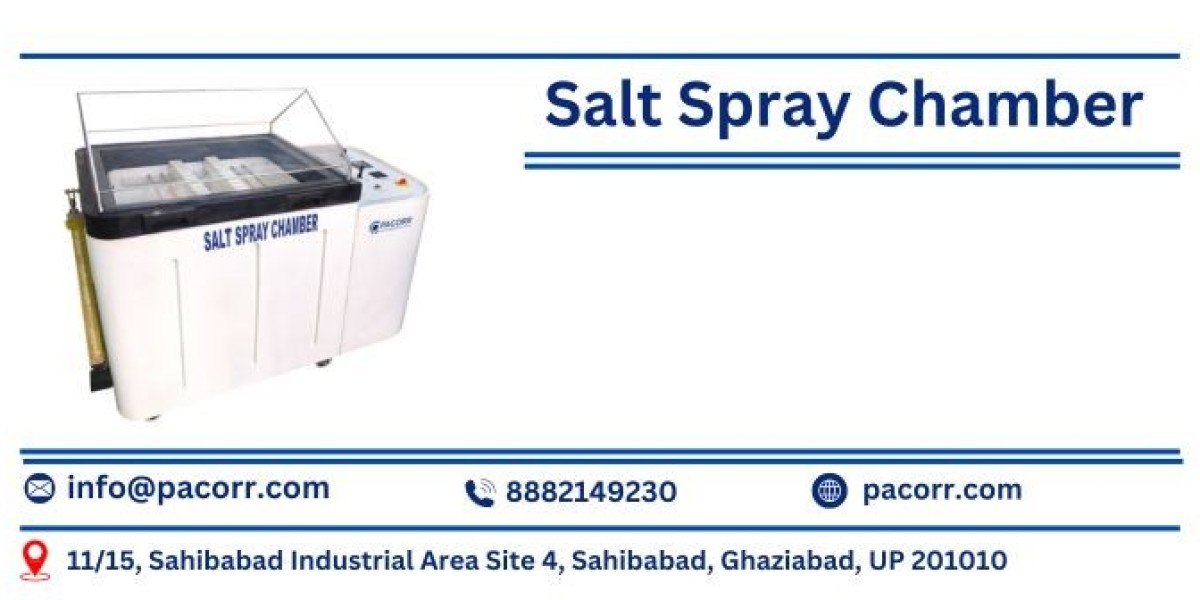Understanding the Salt Spray Chamber
The Salt Spray Chamber, also referred to as a Salt Fog or Salt Mist Chamber, is an advanced piece of equipment designed to simulate corrosive conditions, primarily to test the corrosion resistance of coatings, metals, and other materials. The Salt Spray Test Chamber creates a controlled environment where samples are exposed to a fine mist of saltwater solution, replicating the harsh conditions they might encounter in real-world scenarios.
How the Salt Spray Chamber Works
The working principle of the Salt Spray Chamber is relatively straightforward yet highly effective. Here's a step-by-step breakdown of the process:
- Preparation of Salt Solution: A salt solution, typically composed of 5% sodium chloride (NaCl) dissolved in distilled water, is prepared. This solution mimics the saline conditions that cause corrosion.
- Placement of Test Samples: The samples to be tested are carefully placed inside the chamber on racks or holders, ensuring they are positioned at an angle to allow the salt mist to settle uniformly.
- Generation of Salt Mist: The salt solution is atomized using a nozzle system, creating a fine mist that is evenly distributed within the chamber. The temperature and humidity inside the chamber are precisely controlled to maintain consistent test conditions.
- Exposure Period: The samples are exposed to the salt mist for a predetermined period, which can range from a few hours to several weeks, depending on the test requirements. During this period, the chamber is periodically monitored to ensure optimal conditions.
- Evaluation of Results: After the exposure period, the samples are removed from the chamber and evaluated for signs of corrosion, such as rust, pitting, or blistering. The extent and severity of corrosion provide valuable insights into the material's resistance.
Applications of the Salt Spray Chamber
The Corrosion Test Chamber finds widespread applications across various industries, including:
- Automotive Industry: Testing the corrosion resistance of car bodies, chassis, and components to ensure they can withstand harsh road conditions and exposure to road salts.
- Aerospace Industry: Assessing the durability of aircraft components and coatings to prevent corrosion-related failures.
- Marine Industry: Evaluating the resistance of ship hulls, offshore structures, and marine equipment to saline environments.
- Electronics: Testing the corrosion resistance of electronic components and enclosures to ensure reliability in humid and salty conditions.
- Construction: Ensuring the longevity of building materials and coatings exposed to coastal and industrial environments.
Benefits of Using the Salt Spray Chamber
Utilizing the Salt Spray Chamber Price for corrosion testing offers several key benefits:
- Accelerated Testing: The chamber provides accelerated corrosion testing, allowing manufacturers to quickly evaluate the performance of materials and coatings under simulated harsh conditions.
- Consistency and Reproducibility: The controlled environment ensures consistent and reproducible test results, enabling reliable comparisons between different samples and materials.
- Cost-Effective: By identifying potential corrosion issues early in the development process, manufacturers can make informed decisions, reducing the risk of costly product failures and recalls.
- Compliance with Standards: The Salt Spray Chamber helps manufacturers comply with industry standards and regulations, such as ASTM B117, ISO 9227, and JIS Z 2371, which specify the requirements for salt spray testing.
Conclusion
The Salt Spray Chamber is an indispensable tool for manufacturers seeking to ensure the corrosion resistance and durability of their products. By simulating real-world corrosive conditions, the chamber provides valuable insights into material performance, helping industries across the board enhance product quality and longevity. As the demand for high-quality, corrosion-resistant products continues to grow, the Salt Spray Chamber remains at the forefront of testing technology, driving innovation and reliability in manufacturing.
For more information about the Salt Spray Chamber and how it can benefit your testing needs, visit Pacorr Testing Instruments.







